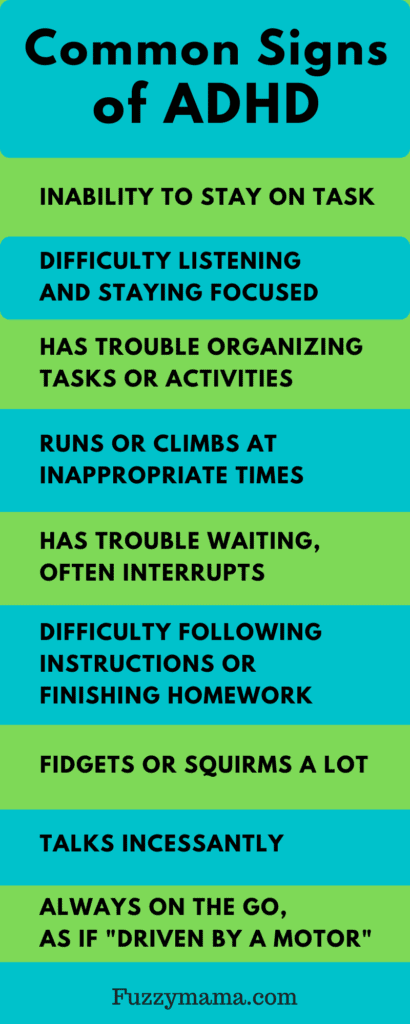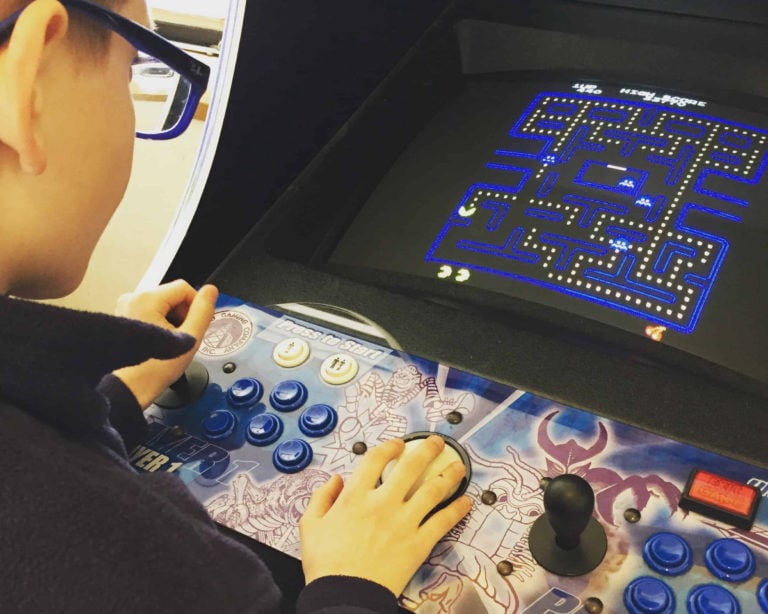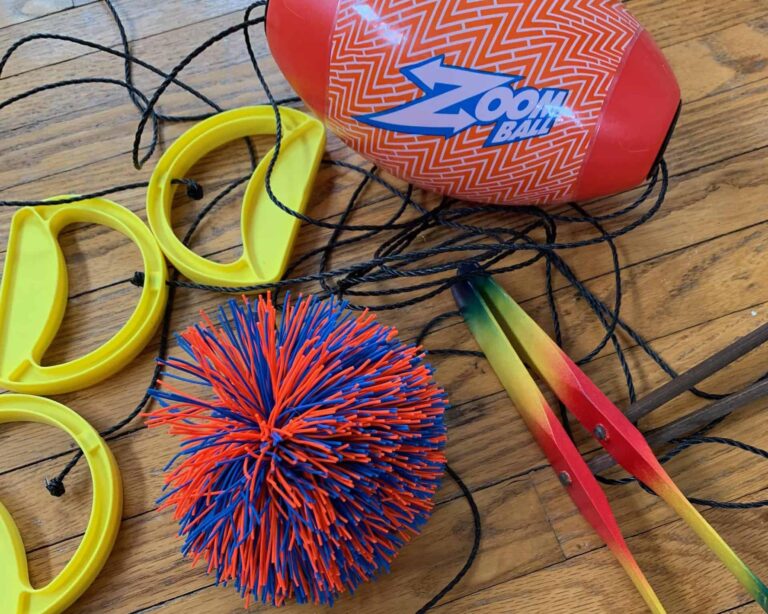Benefits of Getting a Neuropsychological Test

It has been my experience that too often children get a quick ADHD diagnosis by a pediatrician, a caregiver, or even a supportive teacher. Sometimes the road leads immediately to medication with little or no guidance about how to best help your child.
Diagnosing and treating ADHD in children should not be done in a 15 minute office visit. Children are complicated little beings and there can be a whole host of issues behind their symptoms. ADHD can present itself in so many ways – It is not an easy thing to accurately assess during a routine doctor’s visit.
The ADHD diagnosis alone, tells me very little about my child.
Whether you suspect ADHD and are seeking help for your child or your kiddo already has an ADHD diagnosis and you’d like more, concrete information about how their brain works, considering a neuropsychological test is a great next step.
One of our most pivotal experiences on this ADHD journey of ours was going thru psychological testing and getting both kids a full neuropsychological evaluation.
After the half day neurological testing experience. I was given so much information about both of my boys – how their brain works, what is at the root of their learning and emotional challenges, their strengths and weaknesses in an academic setting, along with their motor and spatial abilities.
My hope is that this post will save you time and energy and help you get the most out of your testing experience, should you decide to get one.
Neuropsychological Testing for ADHD
Both of my boys have been through neuropsychological testing for ADHD and learning difficulties – twice. Both instances of testing for ADHD were vastly different: our second testing experience was so much better and much more helpful than the first.
In this article I will cover:
- A comprehensive way for children to get tested for and diagnosed with ADHD
- What are the benefits of getting a neuropsychological test done for your child
- How to find a reputable testing center
- What to expect before, during and after testing
- What kinds of tests are included in a neuropsychological exam?
- How to best use the test results to begin treatment for your child’s ADHD
Don’t miss my video chat below with Dr. Katherine Quie, a child neuropsychologist and award winning author of Raising Will, Surviving the Brilliance and the Blues of ADHD. She is also an awesome mom of an ADHD kiddo, herself.
Should you test your child for ADHD?
Chances are if you are asking yourself this question there are many, many things going on with your kiddo.
You may have noticed some of the typical symptoms of ADHD, taken a quick quiz online, or done some preliminary reading.
You may have encountered a list like this, checking off more boxes than you’d like:

Do any of these sound like your kiddo?
There is No Definitive Test for ADHD
There is not a single, definitive test to determine if your child has ADHD because there is no single marker of ADHD.
Typically your doctor will give you a questionnaire to fill out with rating scales of how often you see typical ADHD symptoms. The Connors Assessment Scale, The Vanderbuilt Assessment Scale and the TOVA are three popular assessments to get an initial idea of what may be going on.
However, they are not individualized for your child and give you very little information.
While kids can share similar traits, ADHD presents itself in so many different and individual ways. (My own two boys carry the same diagnosis and yet, are drastically different in their ADHD Symptoms)
To most accurately assess the whole child a neuropsychological exam is needed.
What is a neuropsychological test?
It’s heart breaking when you don’t know how to help your child.
I know I have been there.
It was a therapist who suggested we get a neuropsyche test when my oldest was in third grade. He was really struggling with huge emotions and streaks of intense energy surges, especially at bedtime.
School was getting more difficult for him, as well.
Yet, I knew he was very bright and had so many great things going for him.
A neuropsyche test is a comprehensive set of tests and tasks to determine how your brain affects your thinking skills and behaviors. A neuropsychologist looks at how the health of your brain affects your thinking skills and behavior.
Take a few minutes to view my video chat below with Dr. Katherine Quie, a child neuropsychologist and award winning author of Raising Will, Surviving the Brilliance and the Blues of ADHD.
What’s included in a neuropsyche test?
There are usually many parts to a neuropsychological test. Your doctor will determine which of the following your child will need, but the test may include some or most of the following:
- Interviews with the parents, relatives, teachers, or other adults
- Personally observing the child or adult
- Questionnaires or rating scales that measure symptoms of ADHD
- Psychological tests
- Other tests that include: academic skills in reading, math and writing
- Intelligence/IQ testing
- Memory testing
- Motor skills
- Social Emotional Skills testing or questionnaires
- Visual / Spatial processing tests executive functioning skills
The goal of a neuropsyche exam is to find the reason why kids are struggling and to chart the most appropriate course of action for addressing the problem.
Does this sound like something you’d like to look into for your child? Read on to learn more!

When should your child get a neuropsyche?
If your child is struggling with attention, hyperactivity, emotional outbursts, as well as one or more subjects in school, a neuropsychological test can be extremely helpful.
We are talking about kids with powerful emotions and energy that goes on for days.
Kids who have trouble sleeping, and trouble sitting still, and who find many things about school extremely challenging.
We know when our kids are struggling more than others.
A neuropsyche test is for kids who struggle on many levels and whose lives (and the lives of their family and caregivers) are greatly impacted by these struggles on a consistent, daily basis.
As a parent and educator, I believe a neuropsychological test is extremely helpful in understanding not only what may be at the core of your kiddo’s challenges, but also in uncovering their strengths that you can work to cultivate.
Why I got my kids a neuropsyche test
In our case, my kids had been struggling for a few years, with emotional and learning challenges. I thought it was something that might go away or remedy itself with a few sticker charts and time outs.
I am sure you can guess how that went.
Both of my kids are super bright (as ADHD kids are), but had a hard time staying focused in school and completing work.
My oldest exhibited a lot of emotional instability and would have huge reactions to seemingly small events. He had an extremely hard time remembering his math facts and concentrating on his school work. He was explosive at home and seemed to be angry all the time.
My youngest was very different, but had trouble staying focused because he was constantly daydreaming and could occupy himself quietly for hours. But in school he struggled with completing work and doing anything that involved writing.
I started to change their diets, take supplements and tried other natural remedies. These interventions helped a lot.
But, I wanted more information about how their brain was processing information, what their struggles could be stemming from and most importantly, how to help them.
We were already under the care of our physician and seeing a talk therapist, but they could not provide the type of answers that a neuropsyche evaluation could.
Related: Our ADHD Story
How do you find a good testing center?
When looking for a good testing center, word of mouth is a great place to start. Ask friends, colleagues, a therapist, your physician or your child’s school if they have any recommendations.
It’s always nice to know someone has had a good experience before you put your trust in a neuropsychologist.
Gather a few names and make phone calls. You can tell a lot about someone from a short phone call. Ask how far out they are scheduling evaluations and when you can expect to get results.
It has been my experience that it can take 3 months or more to get an appointment. Ask to be put on the waiting list in case anything sooner opens up. To save time, schedule the initial interview and the testing on the same day, like we did.
The sooner you start this process, the better.
What do I need to do to prepare ?
Your first appointment will be a sit down with the neuropsychologist. During this initial interview, you will be asked lots of questions about your child, starting with conception and moving through pregnancy, birth and your child’s early life, milestones met, and general medical history.
Along with getting a good idea of your child’s medical history, the examiner will want to know about what is currently causing your child to struggle, both emotionally and educationally.
Being as detailed as possible will ensure that the examiner will be able to select the right set of tests for your child.
I found it helpful to take a few notes about my child’s medical and school history in the days leading up to our interview. I wanted to make sure I did not forget anything – the hour goes by quickly.
There will also be questionnaires that you will fill out along with copies to give to teachers and caregivers to fill out. You will get those during the initial interview, as well.
What tests will my child be given?
While there are some standard parts to a neuropsyche test, the examiner will tailor the battery of tests to your child and your concerns. This is one of the reasons why the initial appointment with the neuropsychologist is so important.
In most instances, the initial interview is the first time the neuropsychologist is meeting you and your child. The more information you provide, the better.
What kind of information is pertinent to mention in order to get the right tests ? Your neuropsychologist will know what questions to ask, but you can provide information about their specific struggles in school and at home.
Do they struggle with reading comprehension? Learning simple math facts? Were they nonverbal until age 3? Do they walk on their toes around the house? Do they have huge emotional outbursts over seemingly small events? Are they constantly moving?
Both of our tests involved a behavior assessment, an IQ test, a sensory profile, memory testing and several academic achievement tests.
Specific Tests Included in a Neuropsyche
If you are curious about what tests might be included in your child’s testing process, here is a list of many of the standard assessments that are part of a neuropsychological test and ones that were included in one or both of my own kiddo’s testing process:
- Wechsler Intelligence Scale for Children(WISC-V)
- The Woodcock-Johnson Tests of Achievement(WJ-IV)
- The Beery-Buktenica Developmental Test of Visual Motor Integration(Beery VMI)
- The Wide Range Assessment of Visual Motor Abilities Peg Test
- Test of Written Language – Spontaneous Writing
- Sensory Profile
- Connors Continuous Performance Test
- Behavior Rating Inventory of Executive Functioning (parent and self form)
- Delis Kaplan Executive Function System
What can I expect the day of the test?
As with any doctor’s appointment, arrive early in case you have any other paperwork to fill out. We had our interview and test on the same day, which I highly recommend for expediting the whole process.
The initial interview with the psychologist was conducted without my kids. I recommend this because you are able to speak freely and efficiently without worrying about hurting your child’s feelings. Your child will be able to speak up for himself during his testing session.
When your interview is over your child will be brought back to a testing room to work with the neuropsychologist or their assistants. (We had assistants administer the test after meeting with the neuropsychologist for the interview.)
The testing may take 4 to 5 hours total and can be broken into smaller bits to allow for snacks, and movement breaks. Depending on the age of your child and your comfort level with the staff, you might be able to leave the facility and come back later in the afternoon.
I stayed for awhile to fill out paperwork and some of the parent questionnaires. My kids were older, so I felt comfortable leaving and taking a nice long walk in the vicinity, but gave the administrators my cell phone number so they could call me if I was not back when my kids were finished.
Before you leave the testing center for the day, make sure to make an appt. for a follow-up visit about 4 to 6 weeks later. At that time the doctor will sit down with you and discuss the results, but may not have the report written yet.
How long will it take to get the results?
Before you make that initial appointment, ask how long the entire process usually takes.
How long it takes to get the final results of the test varies between examiners. The time of year may affect wait time, as well. Schools very often need results for special placements or 504 meetings and this can affect everyone’s wait time. Let the examiner know if you need the results by a certain date.
In general, however, you can expect it to take 4 to 6 weeks after the test to get a face to face appointment where your psychologist will explain the results and another 4 to 6 to get a written document to take to schools and other agencies.
On the day of testing, make sure you set up a future appointment to sit with the neuropsychologist to discuss the test results and recommendations.
What will the “results” look like?
The results will come in an 8 to 10 page document that summarizes all the background information from the initial interview and each test result in detail.
The neuropsychologist will interpret the results and also list any recommended treatments or therapies, along with accommodations for school and home.
The document will be in a format to send to schools and other caregivers who will greatly benefit from the information.
While the tests are written up for your benefit, they can use some lingo that is hard to understand.
Make sure you go over the test with your neuropsychologist in great detail.
There might be several conclusions drawn from the tests : ADHD/ADD, anxiety, sensory processing issues, learning strengths and gaps, to name some of the possibilities.
They will have the data from the entire battery of tests to back up their conclusions. Ask a lot of questions!
They will be able to explain the results in laymen’s terms, including some first steps for you to take to help your child. The test results will include several pages of suggestions and “next steps” for your child, which will include accommodations for school and home.
This important step to discuss results face to face doesn’t always happen. After my oldest was tested years ago we were immediately referred to a psychiatrist who prescribed a stimulant.
There are so many other first steps to discuss before medication is an option (In my opinion!). A neuropsychologist should suggest lifestyle changes such as diet, exercise, and talk therapy first. These options should be the first line of defense whatever your comfort level is with prescription meds.
How will the results help my child?
There are so many benefits that come from the neuropsyche test.
The test will shed light on some of what is behind your child’s struggles and challenges. Their may be short term memory issues, slow processing speed, sensory processing issues, anxiety, dyslexia, or dysgraphia.
The test results will provide you with so much great information about how your child learns.
Results can be shared with teachers and administrators to ensure your child gets the proper attention at school. A neuropsyche evaluation is very likely needed for schools to create a 504 or IEP and to ensure your child get’s the help they need at school.
(And, of course, you have the right to share it with no one!)
The results will clearly show your child’s strengths in the academic realm, which is extremely helpful information for teachers and so wonderful to see on paper!
Neuropsychologists are an amazing resource for further therapies and ideas for accommodations at home and school. A good neuropsychologist will have you leaving the office with a plan in place to start helping your child immediately.
This was where we missed out on the first testing experience. We had no follow up visit, but instead were directly referred to a psychiatrist who prescribed meds for my son with no discussion of alternatives or any information gleaned from the testing.
Speaking as a parent, I wanted to share the results of our second test with everyone who was a part of my child’s life…teachers, therapists, doctors. I loved seeing the strengths that the test picked up on, as well as the real struggles with memory and attention.
My younger son’s processing speed was incredibly low compared to his academic levels, which told us a lot about how long it takes him to complete tasks and his visible frustration and avoidance when it came to everything writing.
Speaking as a teacher, it is so helpful to know how to help a struggling child. The information in a neuropsyche test can absolutely be a game changer for your child at school.
How can I get the support I need?
A neuropsyche report results are a great thing to get you started getting the help you and your child need. There will be recommendations at the end of the report that your doctor should review with you. Often they have specific instructions for other professionals to see, dietary changes, recommendations for exercise etc.
School counselors and psychologists will look to the results to get your child the help he needs at school, whether it be counseling, accommodations for the classroom or formal documents like a 504 or IEP.
Speaking from experience, you may have to really advocate for your child to get accommodations at school. The test alone will not get your child a 504 or IEP, but it is a very good step in that direction.
How often should my child be retested?
The amount of time you must wait between neuropsyche tests is somewhat determined by insurance – if you want it to be covered! We waited 3 years, but I have heard of others having them done yearly.
Make sure you check with your insurance company for their coverage details.
Interventions can start anytime
Getting a neuropsych test can be a lengthy process. It can take a few months to get an appointment with a neuropsychologist and then 4 to 8 weeks to wait for results.
You don’t have to take a test, or wait for the results to start some basic lifestyle interventions to see how your child responds.
There are many simple changes you can start to explore that can have a big effect on your child’s symptoms.
Following an adhd diet, learning some new parenting methods, enhancing your child’s sleep, and making sure they get enough exercise can all have a life altering affect with kids who have ADHD.
Even if you decide to start a course of prescription meds to help the symptoms of ADHD, its important to look seriously into changing lifestyle factors that can have a huge impact on your child’s behavior and learning.
You can read about our journey with meds and ultimately how we chose natural remedies for now, HERE.
The more information you can gather about your child, the better equipped you will be to help them. A neuropsychological evaluation will give you so much great information to then proceed on a path to help your child be the best they can be!





I just found you and I have to say thanks. May God bless you. I have a 5 yr old and I want to get her tested and was told about this type of testing but know I undeestand more. Hope I can get her to be seen by one soon.
Glad you found us! Let me know how it goes. We found out so much information from a neuropsyche. All the best to you.
My child is 9 and his testing will be in the beginning of August. School starts on 8/11, wondering if I should call the Psychiatrist for non stim meds since they take a while to work in the meantime or wait till the results of the testing?
Thank you for writing this, so very helpful!
Hi Bethann! So great that you have gotten a date for testing! Without knowing you and your kiddo, I can’t make a call about meds, but I can tell you that the test results will give you tons of info and suggestions about school and home accommodations. You may not have to consider meds. Do you have a relationship with your child’s school and new teacher? You can often start the 504 process without the test results and just start the conversation about accommodations and what is going to help your individual child. Please let me know if I did not answer your question!
Thank you!
I do have a relationship with my child’s school, not sure who his teacher will be. I do know one of the two 4th grade teachers do not do recess time and I feel that is important for him. I was thinking of contacting the administrator to discuss his testing dates which happen to fall right before school starts and asking if he could be placed in the teachers class that does do recess and that will have more patience and experience with him. His teacher he had this past year was a pretty cut and dry teacher and it didn’t do much for him wanting to perform well for her. I will add that he attends a private school as we do not have many good public choices where I am.
I am glad to hear that not all tests are equal. That means my son can take multiple to find out his real evaluation. I’ll see if he is okay with that first before I do anything else.
Very helpful! We are going through the process right now for our child and this helped confirm to me that we are doing the right thing.
Thanks! I am sure you will learn a lot! It’s a great process to go thru.
Did you take them in Boston? We are in Rhode Island and there are no good Doctors. I clicked on a link and it sent me to Boston office. Thank you.
Hi Kate, the link is for Dr. Hallowell….if you are close to one of his offices, that’d be great. I am in Chicago, so have not used him. It can be tricky to find someone good….but ask at your child’s school for recs, too.
The testing was to determine ADHD, anxiety and PTSD. She inadvertently took her ADHD meds that morning when they said not to and did the testing. Would that not change the outcome? The psychologist said no but it is hard for me to accept that only because she demonstrates numerous symptoms of ADHD but reported that she does not have it.
HI Margie, I am with you, completely. I would think that it would greatly affect it or they wouldn’t ask to not take it. I’d pursue trying to redo it. Do teachers report that there are some challenges? You may just have to go on that…and then retest at the soonest possible point per your insurance. So what you learned was that the meds do help her. Do you have support at the school or is the test to “prove” she needs the help?